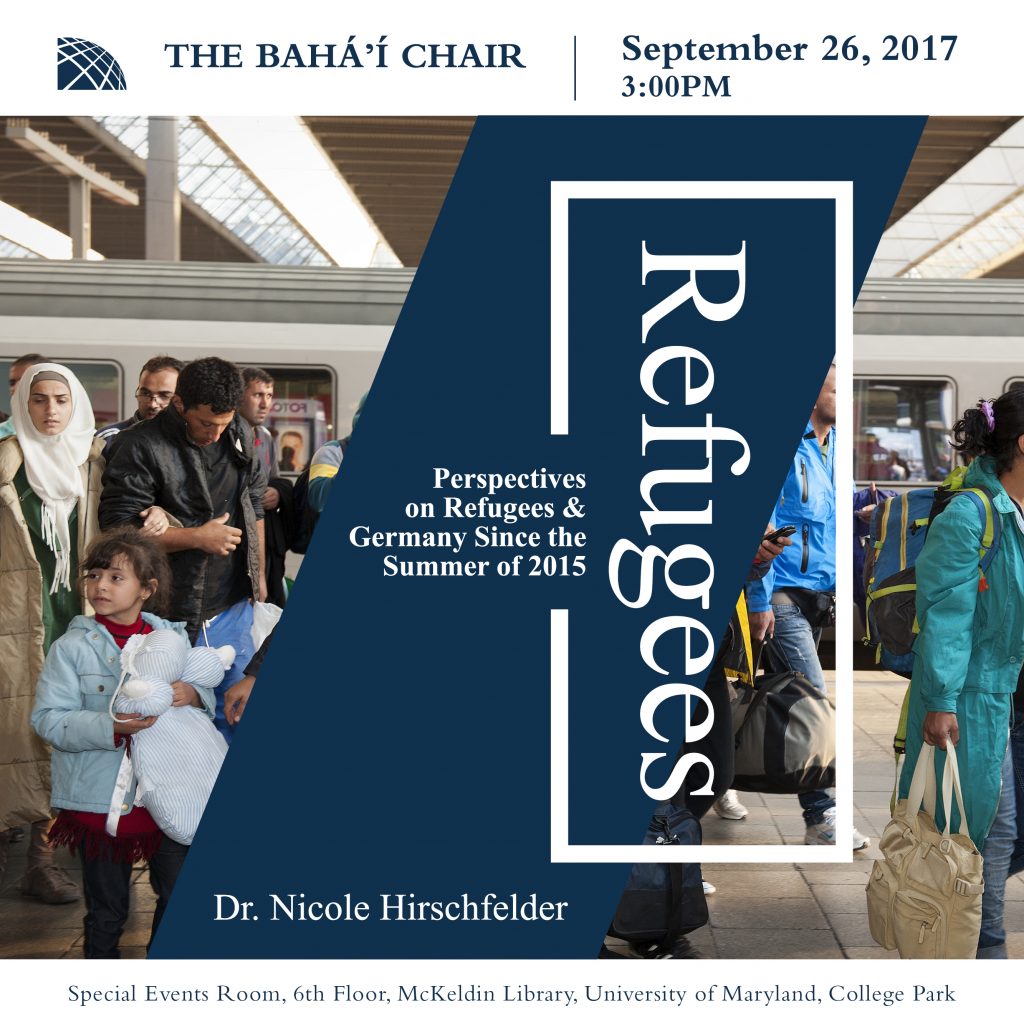The Bahá’í Chair Fall Lecture
Nicole Hirschfelder, Associate Professor for American Culture and Literature, Eberhard Karls University of Tübingen, Germany
Tuesday September, 26th, 2017
3:00PM
Special Events Room, 6th Floor, McKeldin Library, University of Maryland, College Park
 Speaker Bio:
Speaker Bio:
Nicole Hirschfelder received her Master’s for American film and media studies from Goethe University, and spent one year of her graduate studies at the University of Wisconsin. Dr. Hirschfelder also conducted research in the course of Yale University’s PhD research scholar program and she then completed her dissertation at Eberhard Karls University Tübingen. In 2014, she published an edited version of her PhD thesis as her first book, Oppression as Process: The Case of Bayard Rustin.
Her current book project deals with the narrative and visual representation of disasters with a special focus on the concept of the gaze. It examines, for example, the various ways of seeing impact evaluations of disasters, such as Hurricane Katrina. Apart from her main areas of scholarship (inequality, poverty, oppression, and the Civil Rights Movement), she has also published and presented on the Black Lives Matter Movement. She maintains contact with schools and other educational/activist institutions to initiate conversations about the specific meaning of Black Lives Matter in the United States, in comparison with Germany, which is undergoing its own turbulence as it navigates the refugee situation.
In January 2016, she helped organize the workshop, “Who Can Speak and Who Is Heard/Hurt?: Ethnic Diversity, Race, and Racism in American Studies in Germany.” In fall 2016, she was a visiting professor at the University of Maryland on a Fulbright scholarship.
Abstract:
Since 2015, several hundred thousand people have arrived in Germany to escape war, hunger, catastrophes, persecution, or poor-living conditions. In the summer of 2015, more than ten thousand refugees arrived in Germany on a single day, which soon led several politicians and media outlets to speak of a “refugee crisis.” This talk will explain the underlying, problematic implications of this term, address how Germany’s past informs attitudes towards the current situation, and why this frequently makes dialogue between opposing camps difficult. Introducing a variety of examples that illustrate the broad spectrum of realities and social relations, this presentation will strive to provide a nuanced impression of the complex situation in this central European country.
To find out more about the event visit the website of the Bahá’í Chair for World Peace.
Photo Credit: Lori Evelyn Allan
